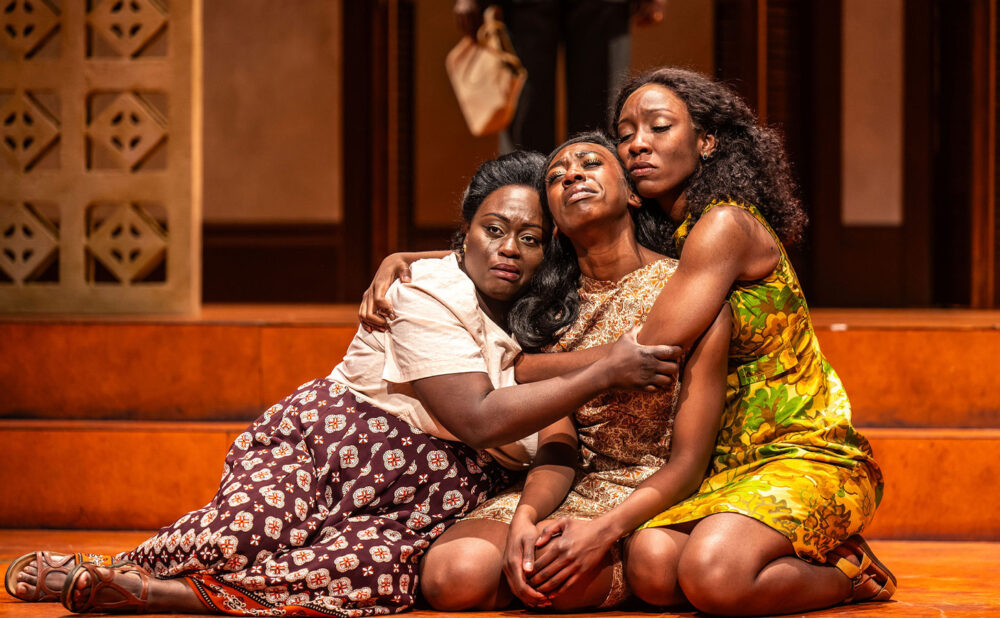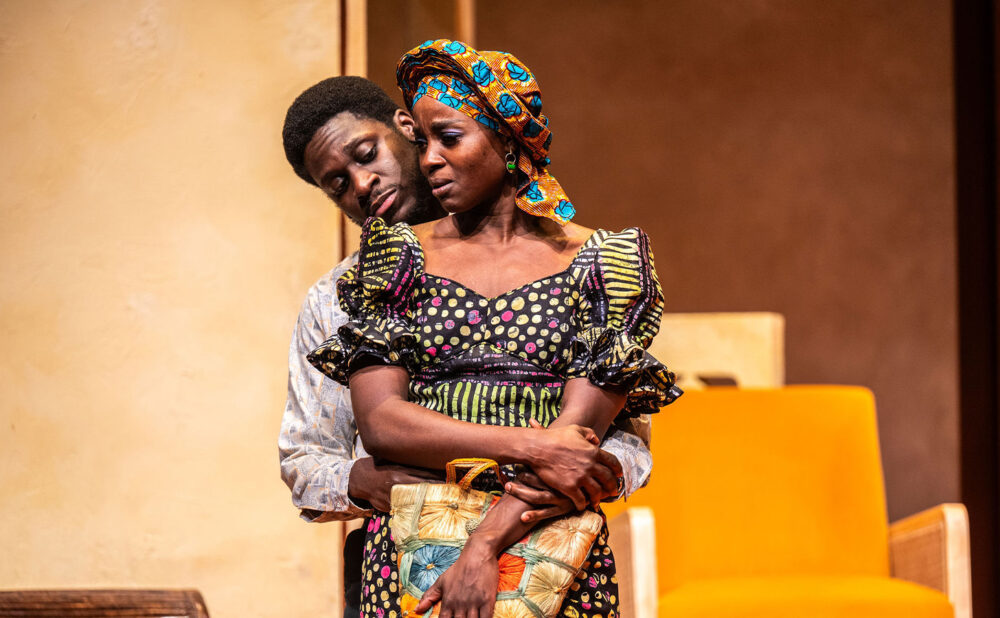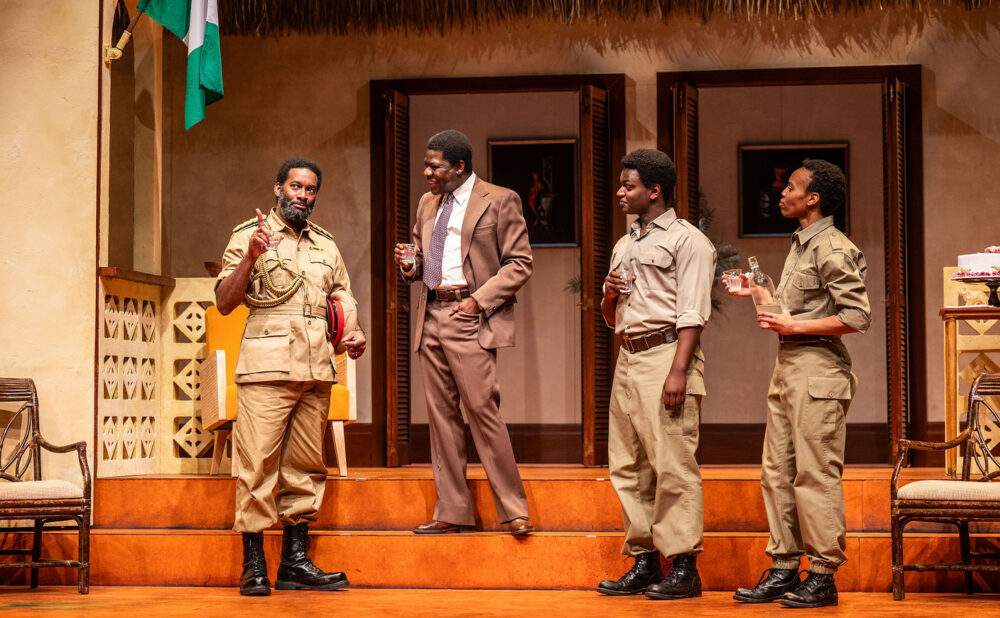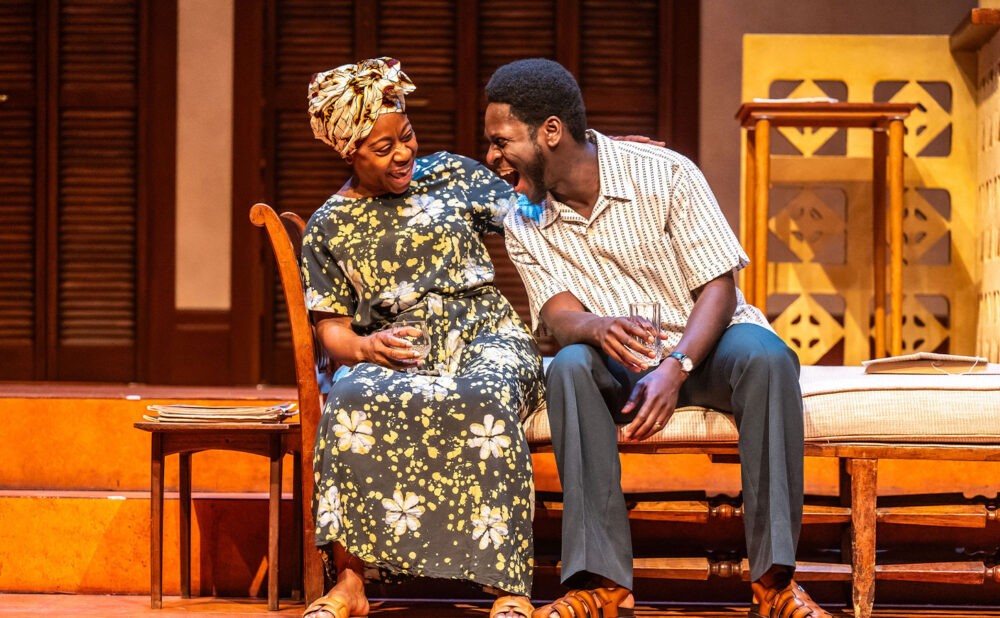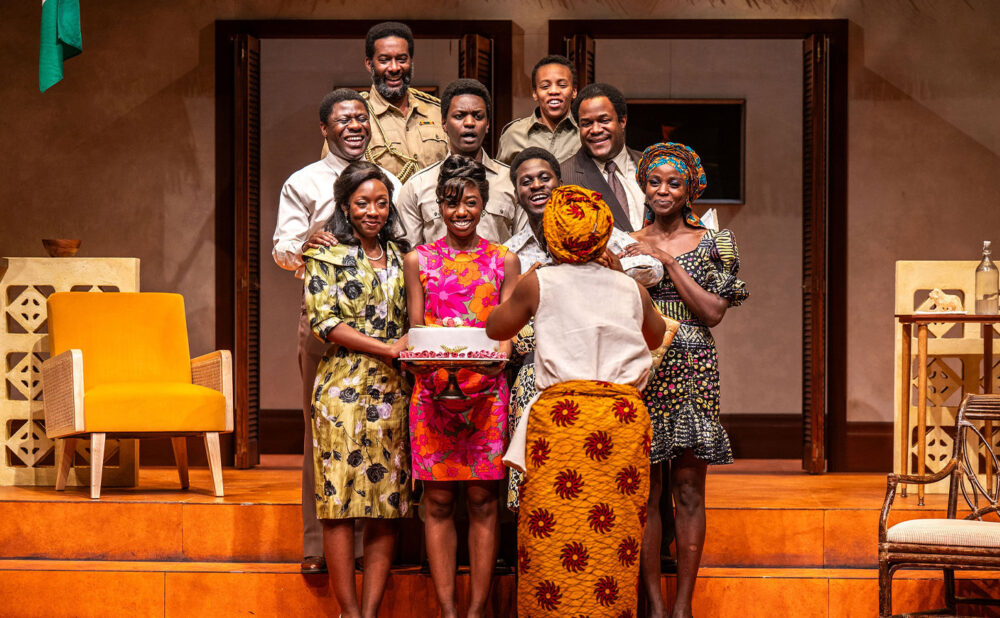Review: Soulpepper’s impassioned ‘Three Sisters’ features superb ensemble acting
Co-production with Obsidian Theatre moves Chekhov to Nigeria
What: Three Sisters
Where: Soulpepper Theatre, 50 Tank House Lane
When: Now, until Sun., March 24
Highlight: Amaka Umeh’s amusing portrayal of eccentric soldier Igwe
Rating: NNNN (out of 5)
Why you should go: Mumbi Tindyebwa Otu’s production unites a cast of 12 luminous actors, who spelunk deep into the emotional centre of Inua Ellams’s sprawling, tonally diffuse Chekhov adaptation.
SOULPEPPER Theatre’s 2024 season has proven busy and impressive, with three strong productions in as many months.
Continuing this theme of threes, March’s presentation is the North American premiere of Inua Ellams’s Three Sisters, adapted from Chekhov and directed by Mumbi Tindyebwa Otu. A collaboration with Obsidian Theatre, the large production — nearly three-and-a-half hours, including a single intermission — unites a cast of 12 luminous actors, who spelunk deep into the emotional centre of Ellams’s sprawling, tonally diffuse adaptation.
Ellams relocates the play’s action from Russia to a small village in Nigeria. The year is 1967, and the country is hovering on the brink of the Biafran Civil War. Unfolding over two-and-a-half years (the same length as the historic conflict), the adaptation counterpoints Chekhov’s signature intangibility, plus his attention to the social intricacies of family life, with the firm facts of history and the shrill shriek of war.
The show begins outside the family house on the birthday of the youngest sister, Udo (Makambe K. Simamba). Neighbours come and go, including the two soldiers jostling for Udo’s affection: well-intentioned lieutenant Nmeri Ora (Ngabo Nabea) and eccentric staff captain Igwe (Amaka Umeh). She’s joined by her sisters, eldest Lolo (Akosua Amo-Adem) and middle child Nne Chukwu (Virgilia Griffith). The former is a schoolteacher in desire of curricular reform; the latter is struggling to grapple with the unhappy state of her marriage, arranged when she was 12.
Tindyebwa Otu’s staging, which leans on Ellams to do the interpretation work, tends toward inertia. As we’ve come to expect from Chekhov productions, the characters spend plenty of time longingly staring out windows. Most of the chairs set designer Joanna Yu litters the stage with — outside the house as well as in the family’s living room, a space revealed during a potent wartime scene — face the audience nearly head-on. The actors, therefore, look forward very often, staring out at the crowd as if posing for a photographer. This stillness is not always engaging, though there is something appropriately existential about it.
But Soulpepper’s Three Sisters is first and foremost a showcase of acting. Beyond the highlights of each individual performance (Umeh’s comic hijinks, Griffith’s arias of emotion, Tawiah M’carthy’s attention to rhetoric), the ensemble’s cohesion resonates. All 12 actors play in a similarly passionate register, meaning they feel a part of the same theatrical world: a surprisingly rare achievement for a show of this size.

